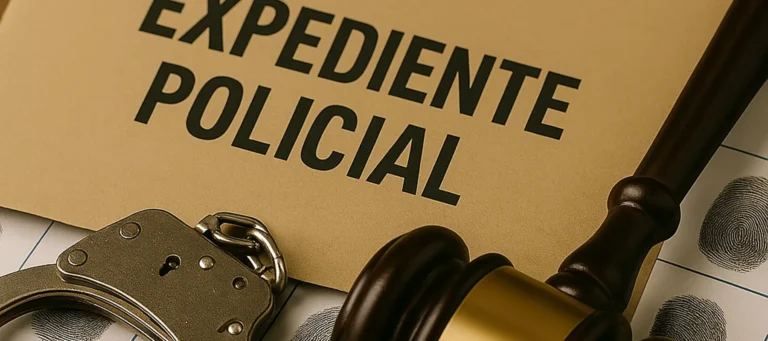Minor vs. serious offenses is one of those comparisons that seem obvious… until it happens to you. At Legal Allies, we receive many inquiries from foreigners (and locals too) who face a complaint or criminal charge and don’t really understand the seriousness of what’s at stake.
Can I go to jail for a shove? Will I have a criminal record? Will it ruin my residence permit? Today we explain it all—legally clear and straight to the point.
What Are Minor and Serious Offenses?
The difference between minor vs. serious offenses in Spain is based on the severity of the act, the intent of the offender, and, most importantly, the penalty established by the Penal Code.
Minor Offenses
These are the least serious criminal offenses. Previously known as “faltas” (infractions), many of these were reclassified as minor offenses after the 2015 Penal Code reform.
Key Features:
- Maximum penalty: up to 3 months’ fine or community service.
- Generally, no prison time involved.
- May result in a criminal record, but easier to clear.
- Handled in a speedy trial or minor offense trial, usually without the need for a lawyer (though it’s still recommended).
Common Examples:
- Stealing items worth less than €400.
- Insulting or threatening someone without physical harm.
- Minor property damage (scratching a car, breaking a window).
Serious Offenses
These are the most serious criminal acts, with long prison sentences and lasting consequences.
Key Features:
- Punishable by more than 5 years in prison.
- Involve a more complex legal procedure.
- Legal representation is mandatory.
- Generate significant criminal records, difficult to expunge.
- May affect the residency status of foreign nationals.
Common Examples:
- Homicide or murder.
- Gender-based violence with physical injuries.
- Drug trafficking.
- Sexual assaults.
What About Intermediate Offenses?
Yes, they exist. These fall between minor and serious offenses.
Intermediate Offenses:
- Penalties between 3 months and 5 years in prison or fines longer than 3 months.
- Require a lawyer and court representative.
- Example: driving without a license, minor injuries with lasting effects, serious threats.
How Does It Affect the Legal Procedure?
Here’s where you’ll see a big difference.
In Minor Offenses:
- Detention is rare.
- You receive a court summons for a minor offense trial.
- Resolved in a single session, with minimal red tape.
In Serious Offenses:
- Immediate detention and pretrial custody are possible.
- Long investigative phase before trial.
- Full trial with judge, prosecutor, defense attorney, and possible witnesses.
- Far more technical and rigorous.
What About Your Criminal Record?
Here’s a key detail.
Minor offenses may lead to a record, but if it’s your first time and the judge agrees, it might not count toward repeat offenses and can be cleared after 6 months without reoffending.
Serious offenses create firm criminal records that can affect:
- Public sector job applications.
- Renewal of your residence permit or citizenship application.
- Travel to certain countries.
Do They Expire the Same Way?
No. The statute of limitations depends on the severity of the offense.
- Minor offense: expires in 6 months.
- Intermediate offense: expires in 5 years.
- Serious offense: can take 10 to 20 years.
Tips If You’re Involved in a Criminal Case
- Don’t underestimate it. A “simple shove” can lead to a conviction if not properly defended.
- Consult specialized lawyers. At Legal Allies, we work with criminal law experts.
- If you’re a foreigner, be extra cautious with your record and legal status. Immigration consequences can be worse than the fine itself.
The difference between minor vs. serious offenses isn’t just academic—it affects your freedom, your criminal record, and your future in Spain.
Have you been summoned to court and don’t know if it’s minor or serious? Unsure how to defend yourself or what it means for you as a foreign resident?
At Legal Allies, we’re here to help—explaining your situation in your language and supporting you through the whole process.




